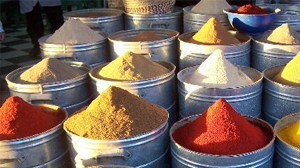 The Agriculture Committee of Parliament has asked not to ratify the trade agreement the EU has agreed to Rabat and is still pending MEPs vote because he believes it will have a negative impact on European agriculture and that the controls certainly Moroccan vegetables, especially tomatoes, than to enter the EU market.
The Agriculture Committee of Parliament has asked not to ratify the trade agreement the EU has agreed to Rabat and is still pending MEPs vote because he believes it will have a negative impact on European agriculture and that the controls certainly Moroccan vegetables, especially tomatoes, than to enter the EU market.
This vote comes a day before another MEP committee, responsible for international trade and competition in this matter, listen to the Moroccan fisheries minister, Aziz Akhenouch to decide its position.
views of MEPs from the agricultural commission is indicative and asks his colleagues of Commerce to “propose to Parliament the refusal of his assent” to the agreement. The plenary of the Parliament may approve or reject the agreement, but not modify it and has not yet set a date for a decision, although the vote will fall, according to several sources consulted.
MEP responsible for the report voted on Tuesday argued that the Parliament must oppose the pact to liberalize trade in agricultural and fishery products with Morocco because “in light of the serious crisis affecting the market for fruit and vegetables a modest quantities of products from third countries could represent a new element of instability. “
In addition, MEPs express their “concern” about the capacity of the European system of control to monitor the entry of Moroccan fruits and vegetables and to meet deadlines and quotas authorized “often ignored by the Moroccan partners.”
According to MEPs, the new trade deal – which is not seen favorably by European farmers in general and especially Spanish – Morocco will open its market fully and immediately to 45% of imports comuniatrias , while the EU will liberalize the entry of 55% of Moroccan products.
The agreement also provides for an increase in concessions vegetables, a sector in which Moroccan products constitute 80% of EU imports, the report said.
MEP
Agriculture Committee is concerned that the implementation of the new agreement, which was closed for Rabat and twenty-seven more than a year ago, European producers are exposed to “potential risks for the negative economic impact” in specialized areas growing vegetables. He also criticizes the “imbalance” in terms of tariff reductions agreed upon by both parties.